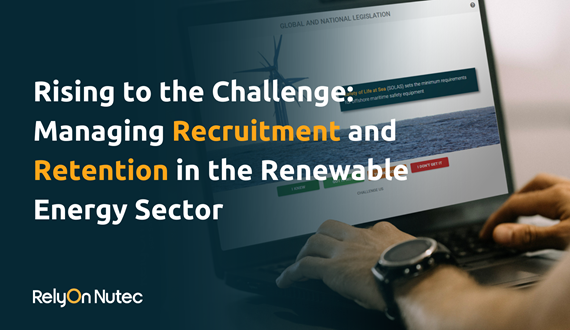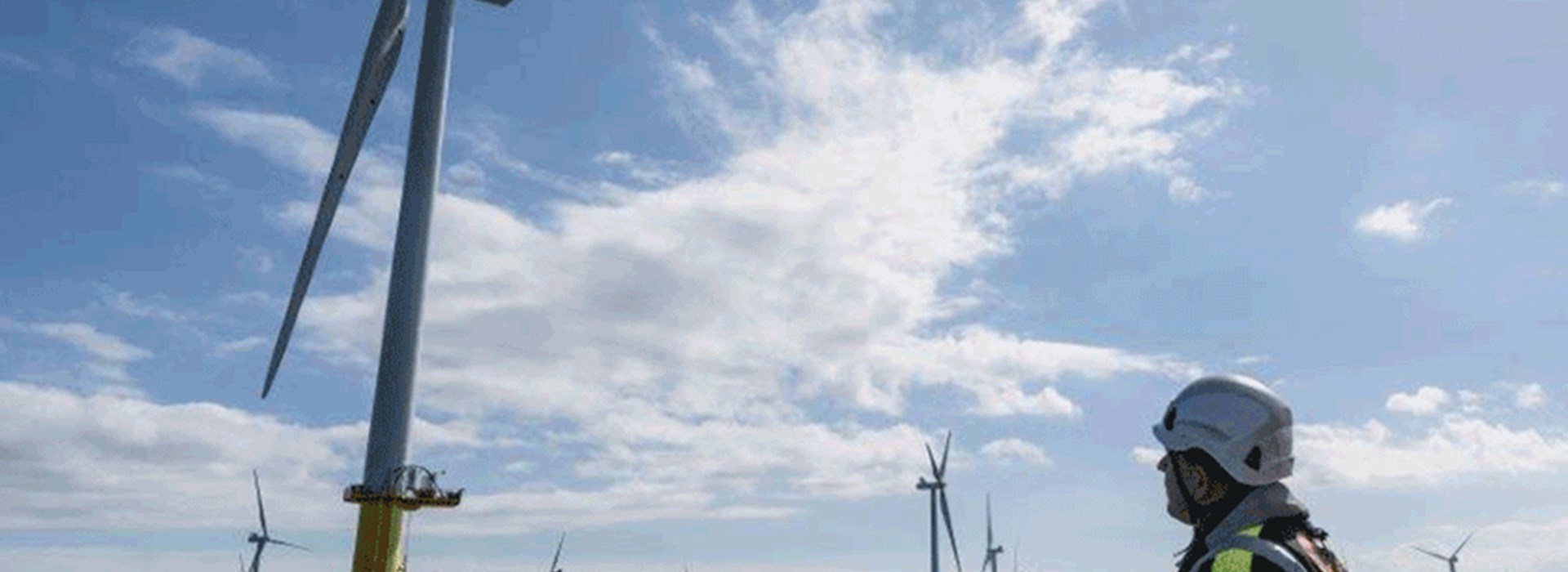Ok
By Bob Donnelly, MD, RelyOn Nutec UK
The oil and gas industry has, for decades, placed safety at the forefront of operations with a continual drive to improve safety measures through increased training and awareness. With offshore wind projects growing across Scotland, there are lessons to be learned to reduce risk in this developing sector as well.
There are currently hundreds of reported incidents in the offshore wind industry every year, particularly in lifting operations, and this recently prompted the GWO (Global Wind Organisation) to implement a new lifting and slinging standard to ensure everyone had essential training to operate in the high-risk environment.
With seven development projects underway in Scotland alone, including the Beatrice Offshore Wind Farm, the largest operational site in Scotland, it is essential that workers can keep themselves and their colleagues safe.
Our training centre in Aberdeen recently achieved GWO accreditation which has seen our team of experts launch a suite of new courses for the wind industry.
The accreditation, along with a £60,000 refurbishment investment, allows RelyOn’s safety experts to transfer their offshore knowledge to deliver GWO basic and refresher training, enhanced first aid, and slinger signal courses.
We have been delivering GWO training at our Teesside centre for the past five years but with the industry growing rapidly around our coasts, it was essential that we met client requirements for this type of training in the North of Scotland.
Due to the offshore location of these wind farms, it is essential that the workforce is well trained as resources are limited and risk is amplified compared to a ‘normal’ working environment.
However, there are transferable skills from the oil and gas industry, particularly that strong understanding of high risk and safety issues in such a remote environment, and our trainers are passing on their expertise to help make the offshore wind industry safer for everyone.
It is estimated that up to 6,400 additional jobs will be required in Scotland’s offshore wind industry by 2032 with more than 1000 wind turbines being installed in coastal waters north of the border. With massive employment opportunities the offshore wind industry is an attractive option but training is mandatory to bring safety up to the same standards as the oil and gas sector.
Next read
-

-

-
 Article 14. June 2024
Article 14. June 2024 -

Ensuring Safety and Efficiency: IRATA Rope Access Training for a Safer Work Environment
In industries such as oil & gas and renewables, where accessing challenging locations is common, rope access methods provide a safe and efficient solution. These methods offer technicians a secure means of navigating heights and restricted areas while minimizing environmental impact. However, proficiency in rope access requires proper training and a globally accepted safety education.
Article 4. June 2024 -

Polaris Sells RelyOn Nutec to Mubadala Capital
The acquisition, part of Mubadala Capital’s flagship Private Equity Fund IV, strengthens the asset manager’s footprint in the business services sector.
Article 24. May 2024 -

RelyOn Nutec Acquires Electrical Training and Consultancy Specialist Quercus Technical Services, Fast-tracking European Electrical Capability Build
Effective May 21st, RelyOn Nutec has acquired Quercus Technical Services BV, one of the largest specialist electrical safety and skills training organizations in the Netherlands. The acquisition of Quercus bolsters RelyOn Nutec’s position in the electrical training market and accelerates its European roll out.
Article 22. May 2024 -

-
 Article 2. May 2024
Article 2. May 2024
